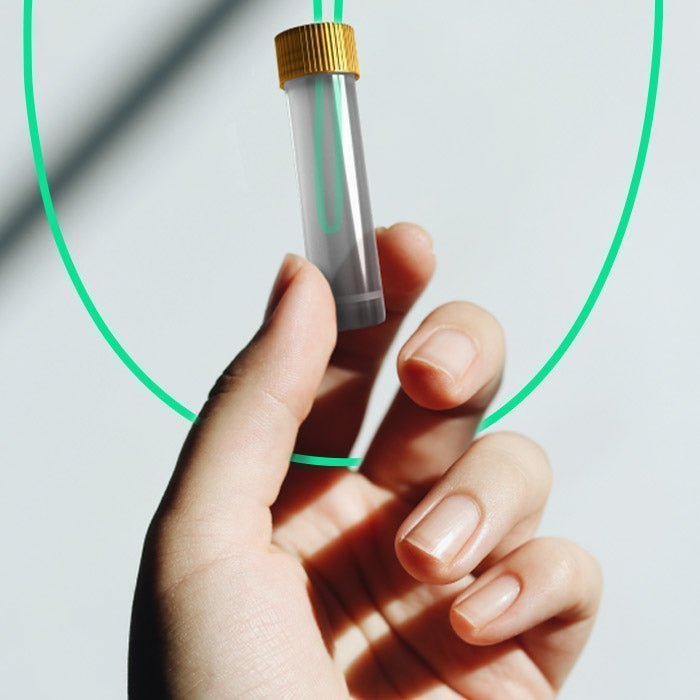What is Gut Dysbiosis?
Our gut is home to trillions of different microorganisms with most of these microbes being what we call “good bacteria”, which are hugely beneficial to our body and play a vital role in our digestion, nutrient absorption, immunity and overall health and wellness.
A healthy gut microbiome is balanced and diverse, packed full of beneficial bacteria types such as Bifidobacterium, Lactobacillus and more which allowing your body to function at its best. A gut imbalance can disrupt the body's efficiency at carrying out normal functions and cause several symptoms.
Gut dysbiosis is an imbalance which occurs when “bad bacteria” grow in numbers and disrupt the overall balance of bacteria in our gut. This causes an imbalance between the good and bad bacteria which can undermine the gut's ability to function effectively and cause multiple unwanted symptoms, having a huge impact on our overall health.
A gut imbalance is usually caused by several factors, including lifestyle, diet, genetics and in some instances, the use of antibiotics.
What are the symptoms of an unhealthy gut?
The symptoms of gut dysbiosis can vary from person to person; some individuals may suffer common digestive issues such as bloating, diarrhoea, constipation, indigestion, and stomach discomfort, whereas others can experience chronic fatigue, weight changes, mood changes, sleep disturbances. When the gut is out of balance, it can show up on the skin, since the two communicate through what’s known as the gut–skin axis.
Gut dysbiosis can also lead to an increased sensitivity or intolerance to certain foods in individuals that could previously be consumed with no adverse reactions.
What causes a gut imbalance?
There are several factors that can contribute to gut dysbiosis.
- Medication: Antibiotics, while effective against fighting infections, can also eliminate beneficial gut bacteria, leading to imbalances and dysbiosis. Prolonged or frequent antibiotic use is a common cause of dysbiosis. Other types of medicine that can impact the balance of the gut include NSAID's like Naproxen and Proton Pump Inhibitors such as Omeprazole can reduce the bacteria richness of the gut microbiome.
- Diet: A western diet, high in processed foods, sugars, and saturated fats but low in fibre can diminish the diversity and number of beneficial gut bacteria.
- Excessive alcohol intake: Frequent consumption of alcohol can damage the gut lining and alter the composition of the gut microbiota, making the environment more hospitable to harmful microbes.
- Chronic stress: High levels of stress hormones such as cortisol can negatively affect our gut balance, reducing the number of beneficial bacteria and making it harder for them to stop the harmful bacteria from multiplying.
- Lifestyle: A lack of physical activity has been shown to slow down the digestive system, impacting the composition and activity of the gut microbiome.
- Gastrointestinal infections: Infections like gastroenteritis can lead to long-lasting changes in the gut microbiota composition.
- Sleep quality: Poor sleep quality and lack of sleep can disrupt our gut microbiome.
-
Environmental factors: Exposure to pollutants, chemicals, and certain medications can adversely affect gut bacteria.
- Intestinal parasites like Giardia lamblia, Blastocystis hominis, and Entamoeba histolytica can compete with commensal bacteria for nutrients and space. This competition can reduce populations of beneficial bacteria such as Lactobacillus and Bifidobacterium. Over time, that shift can disrupt the normal balance of the microbiome leading to an imbalance (dysbiosis). A gut parasite stool test can help to identify the presence of gut parasites and other troublesome species such as viruses, archaea and pathogenic bacteria.
How is it tested and diagnosed?
Identifying gut dysbiosis will typically involve a holistic approach that explores previous medical history, assessment of symptoms, dietary and lifestyle habits as well as any medication that has been taken.
A gut microbiome health test in the form of a stool sample is central to the diagnostic process and will provide the full picture of your gut health including the composition and diversity of the bacteria within your gut. If you are new to gut microbiome testing and want to understand what a gut microbiome test is, our guide explains everything from how they work, why you should take it and what they can help you to identify.
In certain circumstances, a blood test may also be conducted to determine if any inflammation is present within the body. Nutrient deficiencies will also be explored which can also be linked to gut health issues.
Breath tests are also useful for identifying small intestinal bacterial overgrowth (SIBO) which is often linked to gut dysbiosis; however, a breath test will not be able to assess the full extent of your gut health in the same way that a microbiome test can.
How is a gut imbalance treated?
Treating gut dysbiosis with the aim of restoring the natural balance and function of the gut microbiome involves a multi-faceted approach. Our approach to restoring gut health follows a feed and starve approach in which we want to feed the good bacteria, whilst starving the bad bacteria.
Diet and lifestyle modifications will form the foundation of restoring the natural environment of bacteria within the gut, understanding what bacteria you have within your gut and what foods they require is essential to implementing the correct dietary changes.
Other generic dietary modifications can also help to restore the natural balance such as reducing sugar intake, increasing daily fibre, and the inclusion of fermented foods that are rich in probiotics and help to feed the good bacteria within our gut.
Understanding what foods are good for your gut health and why, will help you to make better dietary choices long-term.
Increased physical activity, maintaining an adequate sleeping pattern and implementing effective stress management techniques should also be a high priority and can help to restore our gut microbiome balance.
Learn more about how to improve your gut health naturally with dietary and lifestyle changes.
Can a gut imbalance lead to any other health conditions?
Poor gut health is linked to many chronic diseases, as more research is carried out on the gut microbiome, we continue to learn about how the gut microbiome and imbalances can impact our health long term if not addressed.
- Autoimmune disorders: Imbalances in our gut bacteria have been linked to rheumatoid arthritis, type 1 diabetes, and multiple sclerosis.
- Digestive conditions: Dysbiosis and increased gut permeability (leaky gut) are closely linked with both contributing to the development of irritable bowel syndrome (IBS), inflammatory bowel disease (IBD), and gastroesophageal reflux disease (GERD).
- Metabolic Disorders: An imbalanced microbiome can increase the risk of obesity, metabolic syndrome, and type 2 diabetes. Certain bad bacteria strains such as Firmicutes, as well as a lack of good bacterial strains like Bacteriodetes have been linked to obesity.
- Mental Health Issues: The gut-brain axis is a bi-directional communication pathway between the brain and the gut, imbalances can impact the messages sent between the two and may contribute to mental health issues including anxiety and depression.
- Immune function: The good bacterium within our gut helps to educate our immune system. Dysbiosis can weaken the immune system, which may increase our susceptibility to infections and illnesses.
- IBS: Gut dysbosis is known to significantly contribute to the development and severity of IBS symptoms. Whilst gut dysbiosis can not single handedly cause IBS, it is a big factor in the development of it and how severe the symptoms impact certain individuals.
Understanding and addressing the factors contributing to gut dysbiosis at an early stage is crucial for preventing and reducing the risk of potential long-term health conditions.
Can a gut imbalance go away on its own?
In some cases, your body can correct a gut imbalance on its own without the need of treatment or diet and lifestyle changes. However, when common symptoms start to appear and persist, it indicates that your gut may need a little help in correcting its bacterial balance.
The first line treatment option is usually diet and lifestyle modifications to help feed the good bacteria in your gut which will help to reduce the numbers of bad bacteria and correct the imbalance.
In summary
Spotting the signs of gut dysbiosis at an early stage can help to reduce the risk factors of developing many chronic conditions that are linked to it. It is widely accepted that diet and lifestyle changes should be adopted as a first line treatment option for gut dysbiosis, contributing to better health outcomes and improved quality of life.
Understanding and addressing the main factors that contribute to gut dysbiosis is essential for maintaining long-term health and wellness and avoiding preventing gut dysbiosis.
References
https://www.ncbi.nlm.nih.gov/pmc/articles/PMC8954387/
Gut dysbiosis and autoimmune diseases





